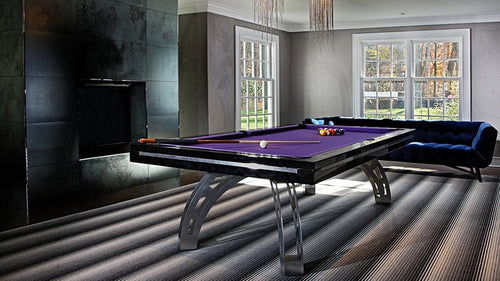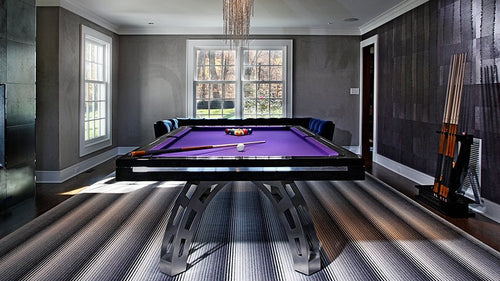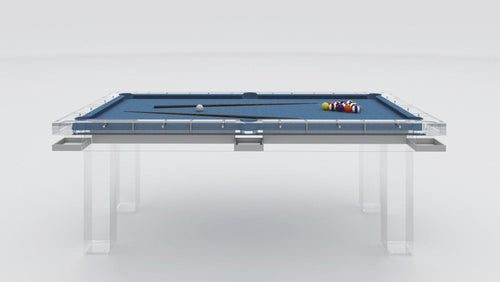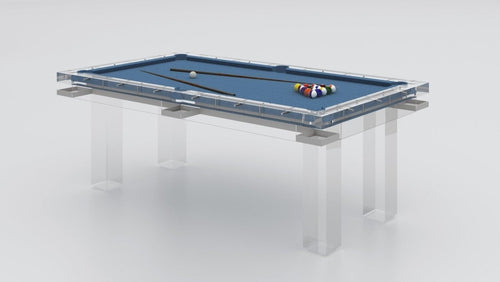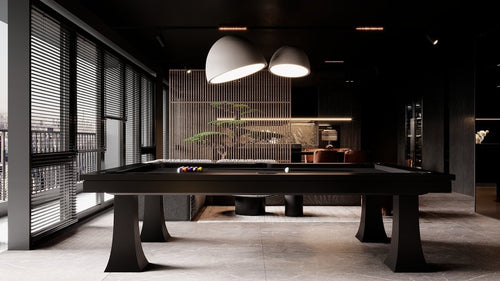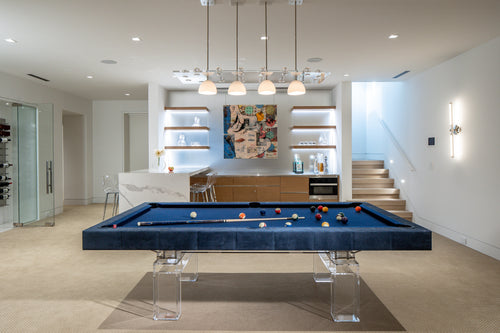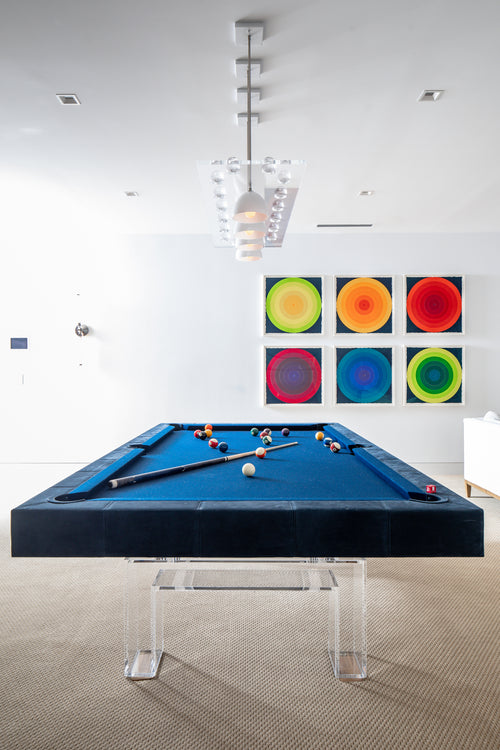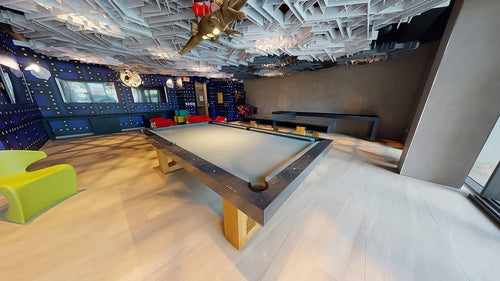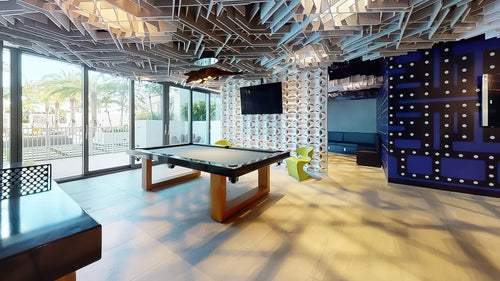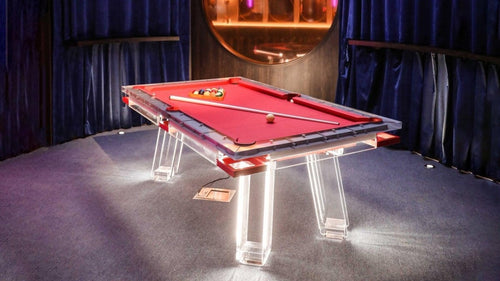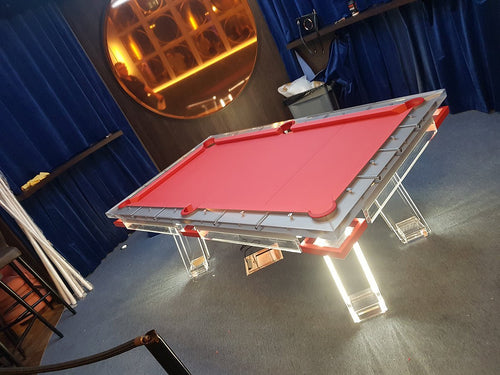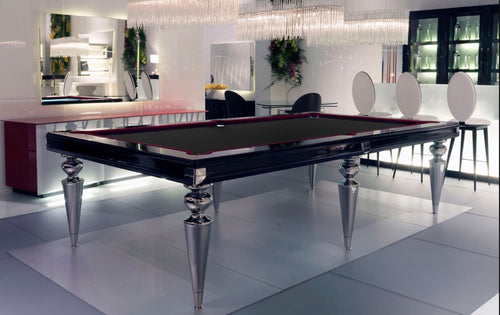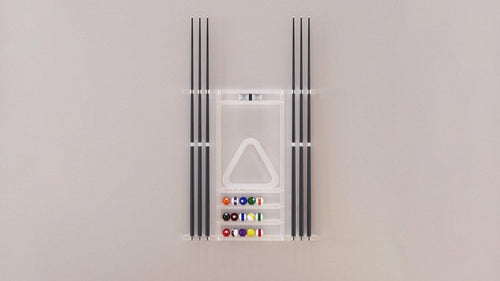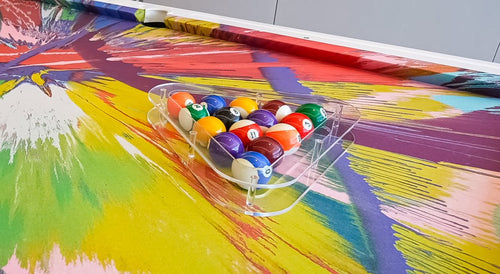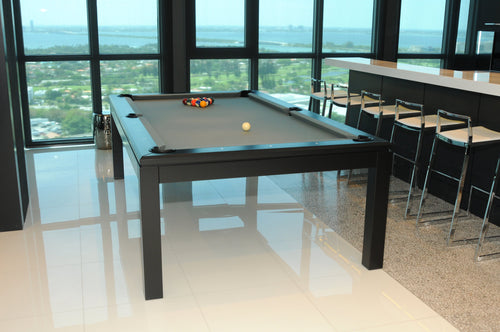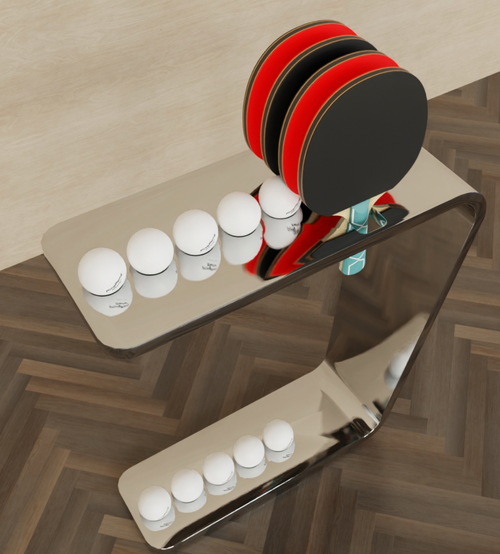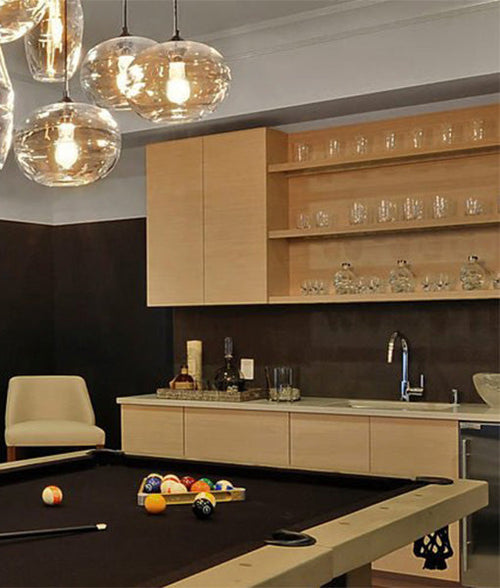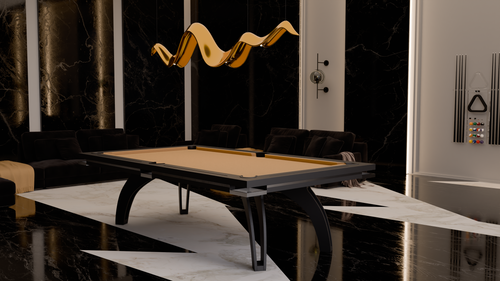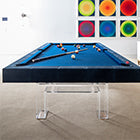Enjoy our modern designs
Estimated Read Time: 6 mins | Updated:
Billiards includes snooker and pool, two of the most popular cue sports. While they share foundational elements, snooker and pool offer distinct experiences in terms of equipment, gameplay, strategy, and cultural significance. Whether you’re a seasoned player or a curious enthusiast, understanding the key differences between snooker and pool can enhance your appreciation and performance in each game.
Understanding the Tables: Snooker vs. Pool
Snooker Tables

Snooker tables are typically larger, measuring 12 feet by 6 feet, and are designed with high-quality materials to meet tournament standards. Snooker’s intricate layout involves 22 balls and requires a spacious table, which is why these tables are generally found in professional venues rather than casual settings.
Pool Tables

Pool tables vary in size, ranging from 6 feet by 3 feet to the standard 9 feet by 4.5 feet used in tournaments. The design is durable and versatile, featuring six pockets for dynamic gameplay. Pool tables are popular in recreational and competitive environments alike.
Key Differences Between Snooker and Pool Tables
-
Ball Size and Quantity:
- Snooker: 22 smaller balls (2 1/16 inches in diameter).
- Pool: 16 larger balls (2 1/4 inches in diameter).
-
Pocket Dimensions:
- Snooker: Smaller pockets (3 3/8 to 3 5/8 inches) increase difficulty.
- Pool: Larger pockets (4 7/8 to 5 5/8 inches) allow for more dynamic play.
- Cushion Construction: Snooker uses K-66 cushions, while pool tables may use K-55 or K-66.
- Table Markers and Surface: Snooker tables have more markers and a “D” at the head end; pool tables have fewer markers, focusing on simplicity.
- Cue Sticks: Snooker cues have smaller tips (9.5 mm), emphasizing finesse, while pool cues have larger tips (13 mm) for powerful shots.
Gameplay Dynamics: Snooker vs. Pool
Precision vs. Power
- Snooker: Precision and control are paramount due to the 52.5 mm (2.07 inches) diameter balls and tight 3.5-inch pockets. Shots require meticulous cue control to avoid fouls and ensure exact positioning for the next shot.
- Pool: The larger 57.15 mm (2.25 inches) balls and 4.5- to 5-inch pockets allow for more powerful shots and leeway in aiming. This setup offers a greater margin for error, making it beginner-friendly and accommodating a wider range of play styles.
Game Pace and Length
- Snooker: Methodical and strategic, with professional matches often lasting hours and consisting of multiple frames (e.g., the World Snooker Championship final is best of 35 frames). A single frame may last 30-40 minutes or longer, depending on the defensive play.
- Pool: Quick and high-paced, with matches often ending in 5 to 15 minutes, especially in games like 8-ball or 9-ball. Single-elimination or race-to formats in tournaments are common, keeping the pace lively and engaging.
Strategic Depth
- Snooker: Deeply tactical, with an emphasis on "safety" shots that position the cue ball to make it difficult for the opponent to score. Players must think several moves ahead, carefully considering break-building opportunities.
- Pool: Offensive and adaptive, with strategies often shaped by the ball layout after the break. Decision-making revolves around potting balls in sequence, sometimes using defensive shots, but generally prioritizing aggressive plays to run out the table.
Competitive Play: Monetary Differences

Snooker: Top-level tournaments like the World Snooker Championship offer substantial prize money. For example, the 2024 World Snooker Championship featured a prize fund of £2.4 million, with the winner taking home £500,000. This high-stakes structure attracts global talent and maintains a prestigious field.
Pool: Pool tournaments also offer significant prize money, although generally less than snooker. The U.S. Open Pool Championship in 2023 had a total prize fund of $325,000, with the winner earning $50,000. Despite the lower sums, pool competitions are widely accessible, allowing players at various skill levels to participate, especially in events like the U.S. Amateur Championship.
Popularity and Cultural Impact
- Snooker: Highly popular in the UK, China, and Southeast Asia. Known for its tradition and strategic depth.
- Pool: Has a global following, particularly in North America and Europe, and is widely played in social settings like bars and pool halls.
Choosing Between Snooker and Pool
- Snooker: Best for those who enjoy a meticulous, strategic challenge, with a preference for precision and longer gameplay.
- Pool: Offers a versatile, dynamic experience suited for casual play and competitive settings, appealing to players of all skill levels.
Final Thoughts
Both snooker and pool enrich the world of billiards with their unique characteristics and challenges. Whether you prefer the intricate strategy of snooker or the lively dynamism of pool, both offer rewarding experiences that celebrate skill, precision, and the timeless allure of cue sports.
Discover Your Perfect Custom Billiards Table with PoolTable Portfolio
At PoolTable Portfolio, we specialize in crafting high-quality snooker and pool tables tailored to your specific needs. Whether you’re setting up a professional arena or a cozy game room, our custom tables provide the perfect foundation for countless hours of precision play and lasting enjoyment. Explore our custom options and find the perfect table for your space today!
Ready for a Custom Pool or Snooker Table?
Shop our curated selection or get in touch for a free consultation to design your ideal game room centerpiece.
Explore Tables NowQuestions? Contact us for advice or a quote!



